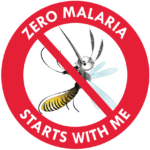Our Story
Our Story
Established in 1984, the National Malaria Control Programme (NMCP) in Malawi is housed under the Directorate of Preventive Health Services within the Ministry of Health. The NMCP seeks to reduce malaria incidence from 386/1000 (in 2015) to 193/1000 in 2022 through universal coverage and equitable distribution of key malaria interventions. The implementation of the country’s Malaria Control Strategy is guided by evidence-based decision making, building partnerships, collaborating with both domestic and international allies, and use of appropriate innovative technologies. Key malaria interventions are delivered under the following thematic areas: vector control; case management; social and behaviour change; malaria in pregnancy; procurement and supply chain management; surveillance, monitoring, evaluation and operational research.
Vision
All people in Malawi are free from malaria.
Mission
To reduce malaria to a level where it is no longer of public health significance in Malawi.
Strategic Goal
To reduce malaria incidence by at least 50% from a 2016 baseline of 386 per 1000 population to 193 per 1000 and malaria deaths by at least 50% from 23 per 100,000 population to 12 per 100,000 population by 2022.
Malaria Programme Financing
Malawi Government has been allocating funding to the health sector annually with focus towards remuneration, recurrent cost of health care facilities and capital expenditure. The budget allocations for the National Malaria Strategic Plan and proportion of the budget allocated to NMCP, shows low levels of financing the MSP. The average of about 60% gap in financing the planned interventions is quite substantial. Successful implementation of MSP activities will continue to depend on timely availability of adequate domestic and external resources.
Cross border Initiatives
In strengthening cross border collaborative activities, NMCP will work hand in hand with District Health Officers in the respective border districts to develop terms of reference for cross border collaboration. The Programme will also advocate with neighboring countries for synchronization and harmonization of malaria control activities at border districts. Cross border collaborative meetings will be held across all borders with the partner countries to align malaria control activities across these borders.
Partnership and coordination
The fight against malaria requires strong partnership and coordination at all levels of health care delivery. In order to strengthen coordination among all partners in malaria control, the program will conduct partner and stakeholders remapping to identify key players in the sector. The program will continue with quarterly meetings for Malaria Stakeholders and when need arises Malaria Advisory Committee meetings will be held. The NMCP will engage private sector and regulatory bodies to enhance adherence to policies and guidelines and reporting.
Epidemic Preparedness and Response
Preparedness action plans for malaria epidemic prevention and response are very critical at the time when the region is experiencing rise in Malaria Incidence as a result of climate change. This can be implemented effectively if they are supported by inter-agency coordination, an infrastructure of well -trained personnel, adequate supplies and equipment, supervision and evaluation. The NMCP with support from partners will develop the Malaria epidemic preparedness and response plan which will have epidemic thresholds at national and district levels calculated using five or more years of historical data.

